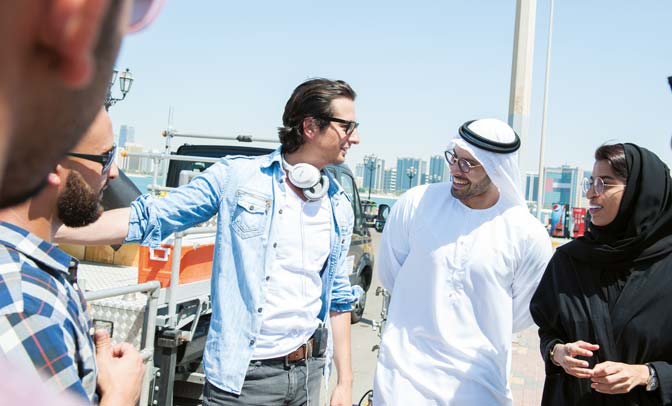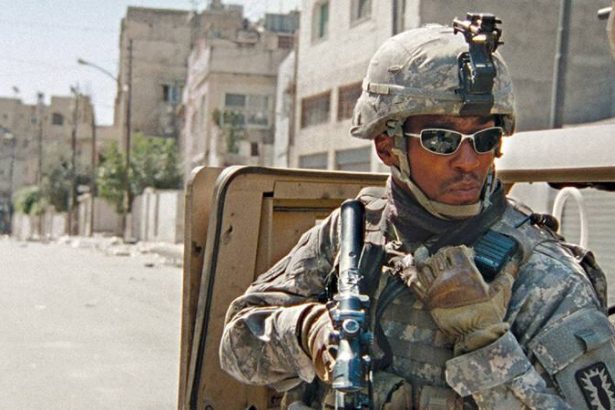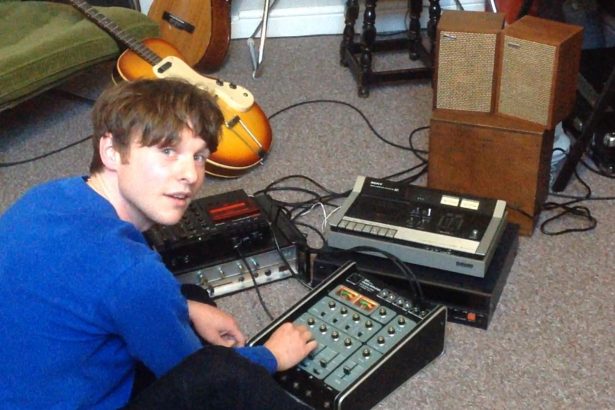Five years is a long time in film. In 2009, Slumdog Millionaire (now considered to be something of an enduring classic) won Best Picture at the Oscars and Avatar was on its way to becoming the highest-grossing movie of all time. But away from Hollywood, there was another significant milestone. For the first time, a film from the UAE featured at the Dubai International Film Festival’s glittering Arabian Nights Gala.
The film was City of Life, which went on to garner international praise. “Incredible,” smiles its director, Ali Mostafa, now. “Five years ago, eh? I tried to make a little bit of a statement with that film and show that a local production could be a quality film. I think we achieved that.”
Mostafa is permitting himself to reminisce because, five years on, his follow-up film, From A to B, screened at the 2014 Dubai International Film Festival in December.
A lot has changed, both for the 33-year-old director born in London to an Emirati father and British mother, and the film industry in the UAE. In 2009, there were just four films categorised as being from the country at the festival, and two of those were only very loosely connected through funding awards.
This time around, there were 11 films, including four from Emirati directors. No wonder Chairman of the Dubai Film And TV Commission Jamal Al Sharif, who admitted in Visionrecently that the film industry in Dubai had to be “jumpstarted”, was so pleased with the past five years of developments.
A staggering 22 films were shot in the emirate in 2013 alone, and it hasn’t gone unnoticed: a white paper was published late last year to look at areas in which the film industry can improve. “The more we can do, the better,” agrees Mostafa. “And it starts with the quality of films improving, which I think that they are.”
Such confidence is reflected in From A to B. Rather than make another thoughtful drama about Dubai life, which might garner more critical acclaim than box-office success, Mostafa gambled with a comedy designed to be a commercial smash hit. The story of a road trip in which a bunch of old school friends decide to drive from Abu Dhabi to Beirut, his film is an escapist 108 minutes, “filled with speed bumps, breakdowns, wrong turns, shady mechanics and a camel or two”.
“City of Life was based in Dubai, the place I knew best,” says Mostafa. “I wanted to tap into all the cultures and ideas I’ve grown up with, which is why you got the Hindi storyline, the Western storyline, the Emirati storyline. With From A to B I wanted to show I had diversity as a filmmaker, so comedy was the obvious challenge. And I love road-trip movies like Thelma & Louise, Sideways and The Motorcycle Diaries. Comedy is not easy to tackle successfully, but we worked really hard to make sure this film could resonate both with Emirati audiences and cinemagoers in, say, midwest America.”
He has a chance, simply because for all the japes, there is a neat connection between his two films: both investigate identity. The characters in From A to B are Syrian, Egyptian and Saudi but meet at an American school in Abu Dhabi. On their trip, which takes them through Saudi, Jordan and Syria, they’re out of their comfort zone and forced to confront who they are as people.
Certainly, initiatives such as the Dubai International Film Festival’s Muhr Award, or its annual IWC Filmmaker Award, are proving helpful both in terms of publicity and funding. The Muhr competition – for short films, features and documentaries originating from the UAE – has emerged as a definitive platform for Arab film.
The IWC award allows directors based in GCC countries to vie for a US$100,000 funding award for a feature film in an advanced stage of development, and Mostafa was a finalist in 2012. The following year, the Emirati director Waleed Al Shehhi won the prize for Dolphins. Mostafa, for one, is delighted that he’s no longer the only poster boy for Emirati film.
“It’s been nice that people recognise me for City of Life, but it’s also been really sad over the last few years that other feature films got made but didn’t get the attention they deserved,” he says. “I was very blessed that the movie was in the cinemas here for nine weeks, but other Emirati films got made and only lasted a week. So it’s about Emirati people supporting these films but also maybe we have to make films that don’t just appeal to Emirati people, too.”
Which is why City of Life and From A to B are so interesting. The only surprise is that, for someone who is so keen to advance the UAE film industry – “to help it grow is my mission”, he says – it took Mostafa so long to make his second film.
“I assumed it would be a lot quicker,” he laughs. “When you are young, you think you’ll be making a film a year, I guess. But you learn. And I had my work in commercials [he’s directed adverts for Range Rover, Sony and Etihad] to fall back on.”
The reason for the delay, as always, was funding. And when the money came, the contracts were a fascinating insight into how the UAE film industry works. Abu Dhabi’s twofour54 media initiative was involved in the development of the script in the early phases, and even though its mandate isn’t actually to fund films, Mostafa says it took a 50 per cent stake as a gesture of faith in the project. The other half came from Image Nation in Abu Dhabi, more used to funding films based both in the UAE (Djinn) and internationally (The Help).
“When you work on something like From A to B, with the connections it made across the region, you realise the passion of everyone to build a coherent film industry here,” says Mostafa.
“My hope is that it gets to the level where people go to the cinema, have a choice between a Hollywood and Emirati film and choose the Emirati one. And we shouldn’t dream about that happening one day in the distant future. We should believe it can happen much sooner than that.”


